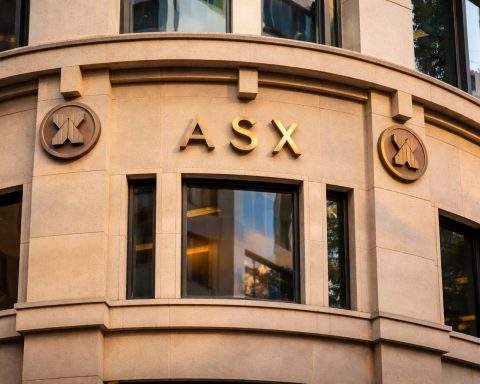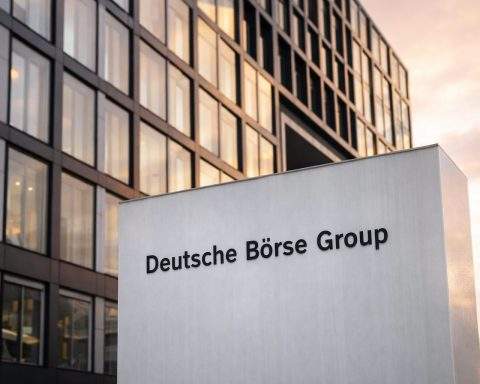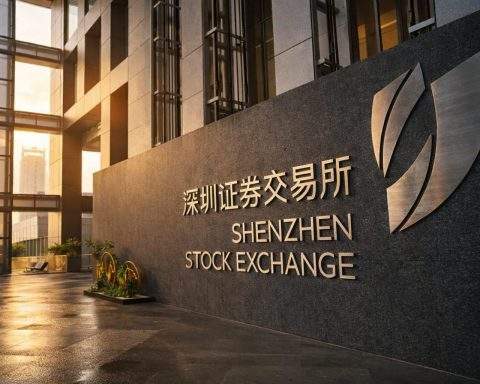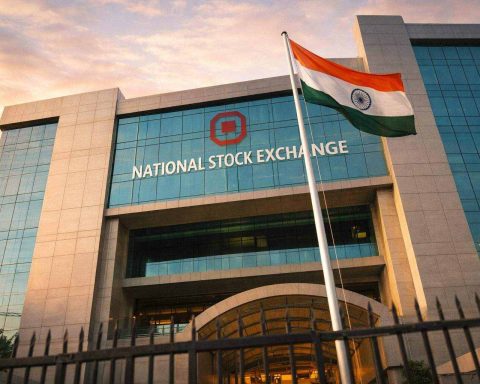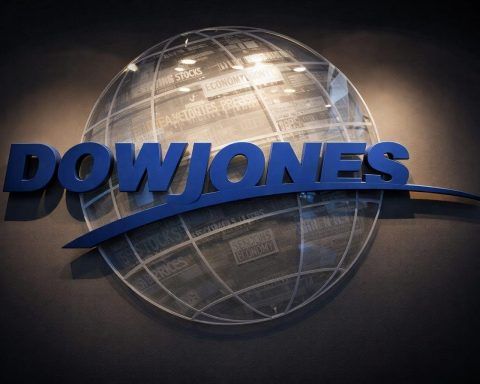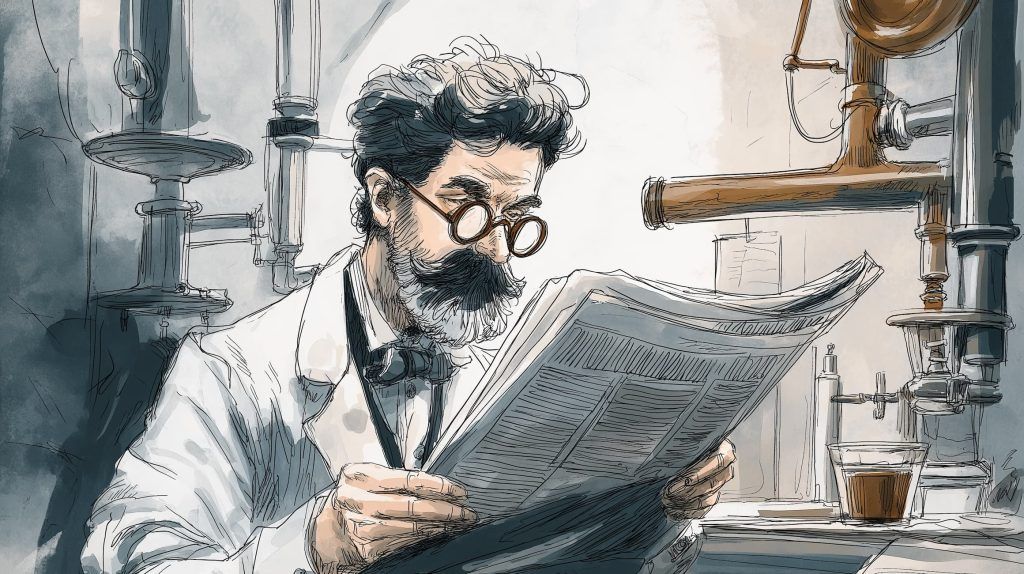- Bridgewater Associates more than doubled its Nvidia stake to 7.23 million shares, a $1.14 billion position, and boosted bets on Alphabet and Microsoft by 84% and 112% respectively in Q2 filings.
- Tiger Global Management added 4 million Amazon shares, ending June with 10 million Amazon shares worth $2.34 billion, and lifted positions in Alphabet, Nvidia, Microsoft and Meta.
- ARK Invest ETFs posted record inflows, with 2025 year-to-date flows turning from negative to over $2.6 billion in the black.
- U.S. authorities approved a deal allowing Nvidia and AMD to resume selling advanced AI processors to China, requiring 15% of China-sale revenues to the U.S. government and enabling a scaled-down Nvidia Blackwell GPU export to China.
- Mizuho’s Vijay Rakesh raised price targets on Nvidia and AMD to $205 each, forecasting Nvidia revenue to rise from $208 billion in FY2026 to $292 billion by FY2028 and AMD data-center GPU sales up 40% year-over-year to $13.6 billion by 2027.
- Tesla suspended its Dojo AI supercomputer project and pivoted to a unified AI chip roadmap with internal chips nicknamed AI5 and AI6, likely increasing reliance on Nvidia GPUs.
- Palantir Technologies is up 134% year-to-date, raised its annual revenue outlook, and secured a multi-year AI partnership with Sompo Holdings of Japan.
- Oracle and Google announced an August 14 cloud alliance to offer Google’s Gemini AI models through Oracle Cloud, starting with Gemini and integrated into Oracle apps.
- Senator Josh Hawley launched a probe into Meta’s AI policies after a Reuters report revealed chatbot policies permitting romantic or sensual chats with minors.
- The Global X Robotics & Artificial Intelligence ETF BOTZ rose about 0.5% to $34.08, about 7.5% year-to-date.
Artificial intelligence stocks remained firmly in the spotlight over the weekend, as fresh disclosures and announcements from August 16–17 revealed big investors doubling down on AI winners, chipmakers navigating geopolitical twists, a surprise strategy shift at Tesla, and a heated debate over soaring valuations. AI bellwethers like Nvidia, AMD, and Palantir saw significant developments, while tech giants Microsoft, Amazon, and others leveraged alliances and faced regulatory scrutiny. AI-focused exchange-traded funds (ETFs) also reflected the sector’s momentum. Below is a comprehensive roundup of the latest AI stock news and market moves, with key quotes from industry voices.
Big Money Bets on AI Titans
Major investors are pouring back into Big Tech and AI leaders, signaling confidence that artificial intelligence will continue to fuel outsized growth. New SEC filings show top hedge funds aggressively increased stakes in the so-called “Magnificent Seven” tech companies during Q2. Ray Dalio’s Bridgewater Associates more than doubled its Nvidia holdings to 7.23 million shares (a $1.14 billion position) reuters.com, while boosting its bets on Alphabet and Microsoft by 84% and 112%, respectively reuters.com. Chase Coleman’s Tiger Global Management likewise added 4 million Amazon shares, ending June with 10 million shares worth $2.34 billion reuters.com, and increased positions in Alphabet, Nvidia, Microsoft and Meta ts2.tech. This marks a sharp reversal from earlier caution and underscores conviction that these AI-heavy giants will drive further market gains. In fact, a Bank of America fund manager survey crowned “long the Magnificent 7” as the world’s most crowded trade this month ts2.tech.
Investors are also snapping up shares of smaller AI players. Tiger Global, for example, took new positions in AI chip supplier Lam Research and cloud startup CoreWeave reuters.com. Meanwhile, famed tech investor Cathie Wood saw renewed interest in her innovation-focused funds. ARK Invest’s ETFs, which concentrate on disruptive tech and AI names, just recorded record inflows, flipping year-to-date flows from negative to over $2.6 billion in the black finance.yahoo.com. “The massive surge in inflows” reflects how quickly sentiment has shifted back in favor of AI-forward stocks barchart.com. Overall, the S&P 500 is up about 10% this year largely thanks to AI-driven megacaps reuters.com – a rally that big money appears eager to ride.
Chipmakers Navigate Geopolitics and Soaring Demand
Chip giants Nvidia and AMD, at the heart of the AI boom, found themselves at the nexus of policy and profit this week. In a controversial move, U.S. President Donald Trump approved an unprecedented deal allowing Nvidia and AMD to resume selling advanced AI processors to China – provided they hand 15% of the China-sale revenues to the U.S. government reuters.com reuters.com. The arrangement, which lets Nvidia ship a scaled-down version of its next-gen “Blackwell” GPU to China, marks a striking shift in export policy despite Washington’s longstanding fears of fueling China’s military AI capabilities reuters.com. “If Nvidia and AMD are given special treatment because they’ve ‘paid to play’, why shouldn’t other companies be doing the same?” quipped Mario Morales, IDC’s semiconductor research lead, warning the deal could prompt other U.S. allies and firms to seek similar leeway swingtradebot.com. Critics like former White House advisor Saif Khan cautioned that even scaled-down U.S. chips could allow China to “build world-leading, frontier-scale AI supercomputers” by quantity alone reuters.com.
Beijing’s response has been mixed. Chinese regulators recently summoned tech giants such as Tencent, ByteDance, Baidu and others, questioning why they are buying so many Nvidia H20 AI chips instead of domestic alternatives reuters.com reuters.com. Officials even voiced concerns that Nvidia’s U.S.-mandated compliance paperwork might expose sensitive Chinese data reuters.com. So far, China hasn’t banned purchases of the H20 – a less-powerful processor Nvidia designed to skirt export curbs – but the scrutiny underscores the tightrope chipmakers walk in the U.S.–China tech standoff.
Despite these geopolitical crosswinds, analysts remain bullish on the chipmakers’ prospects amid red-hot AI demand. Mizuho’s Vijay Rakesh raised his price targets on both Nvidia and AMD this week, citing “strong AI server demand” from cloud giants and the upside from renewed China sales. He now pegs Nvidia’s stock at $205 (about 13% above current levels) and AMD at $205 (11% upside) ainvest.com. Rakesh projects Nvidia’s annual revenue will surge from $208 billion in FY2026 to $292 billion by FY2028, helped by an extra $20 billion in sales from China after the export greenlight ainvest.com. He forecasts AMD’s data-center GPU sales will jump 40% year-over-year, reaching $13.6 billion by 2027 ainvest.com ainvest.com. In short, Wall Street sees the U.S.–China deal as potentially supercharging an already booming market for AI chips. Nvidia’s stock closed Friday around $180 (off slightly on the week), and AMD near $184, but both could have more room to run if these rosy forecasts pan out.
Tesla’s Dojo Pivot Reaffirms Nvidia’s Dominance
In the EV arena, Tesla made waves with a surprise AI strategy U-turn that cheered semiconductor investors. CEO Elon Musk took to X (Twitter) to announce Tesla is suspending “Dojo,” its in-house AI supercomputer project, after years of development. Musk bluntly deemed the stand-alone Dojo system “an evolutionary dead end,” saying Tesla will instead focus on a new unified AI chip roadmap (internal chips nicknamed “AI5” and “AI6”) ts2.tech ts2.tech. Essentially, Tesla concluded it no longer makes sense to build multiple custom AI chips for niche uses like self-driving – a move that frees it to rely more on established chip suppliers.
Crucially, this pivot is a win for Nvidia and other external chipmakers. “It reinforces the idea that Nvidia remains king of the AI realm,” noted one tech analyst, since Tesla will likely go back to buying Nvidia’s GPUs rather than trying to replace them with homegrown silicon ts2.tech ts2.tech. Analysts hailed Tesla’s retreat as tacit acknowledgement that even the most ambitious automaker “cannot easily out-innovate the established AI chip leaders” ts2.tech. Nvidia’s investors welcomed the news, which reaffirms Nvidia’s central role in the AI infrastructure behind autonomous vehicles and robots. Tesla’s own stock rose 1.4% Friday, while Nvidia shares held steady, as the market digested the new reality: going forward, Tesla (and likely other carmakers) will lean on proven chip partners rather than risky in-house ventures ts2.tech ts2.tech. By shelving Dojo, Tesla essentially bolsters Nvidia’s long-term growth story in emerging areas like self-driving cars – a notable validation for the AI chip titan.
Palantir’s AI Surge Meets Skepticism
Few stocks embody the 2025 AI euphoria as much as Palantir Technologies – and now a fierce debate is brewing over its eye-popping valuation. The data analytics firm turned “AI platform” provider has seen its stock skyrocket 134% year-to-date, making it the S&P 500’s top performer and hitting multi-year highs finance.yahoo.com ts2.tech. The latest leg up came when Palantir raised its annual revenue outlook and notched its second straight profitable quarter earlier this month ts2.tech. Investors are betting big on Palantir’s military-grade AI software, which has won billions in U.S. defense contracts and is expanding into enterprise sectors reuters.com reuters.com. “Palantir isn’t just a government vendor anymore – it’s becoming an indispensable partner for enterprises in the AI revolution,” says Jacob Falkencrone, Saxo Bank’s head of investment strategy reuters.com. Wedbush Securities even predicted Palantir could reach a $1 trillion market cap in coming years amid “the AI boom” reuters.com.
Palantir’s outspoken CEO, Alex Karp, is brimming with confidence after these results. In a recent CNBC interview, Karp delivered a blunt message to his competitors: “read ’em and weep.” sharewise.com The four-word taunt – effectively telling rivals to study Palantir’s blowout earnings and despair – underscored his belief that Palantir has a commanding lead. (Karp, known for unscripted musings, has described this moment as the “intersection of defense operations and AI” turning into “fertile ground” for his company’s generational run sharewise.com.)
However, not everyone is buying the hype. This week, famed short-seller Andrew Left (of Citron Research) revealed he is now betting against Palantir after its 2025 surge. Left openly blasted the stock’s valuation as “absurd” and “unjustifiable,” arguing that even great companies can be overpriced businessinsider.com businessinsider.com. “If this was the greatest company ever… the stock still can get cut by two-thirds,” Left told Fox Business, noting Palantir’s revenue multiples remain vastly higher than Nvidia’s at its peak businessinsider.com. He pointed out Palantir trades around 80× sales and 290× forward earnings, far richer than any peer. “I’ve stopped even looking at the ratio because it’s become so absurd,” Left said, adding that “there’s never been a company that has that type of [P/E] multiple that’s not corrected 50%.” businessinsider.com In his view, Palantir’s meme-stock-like retail fanbase and AI buzz have pushed it into dangerously frothy territory ts2.tech businessinsider.com.
These barbs injected a dose of realism: Palantir’s stock slipped ~2% on Aug. 15 amid the broader tech pullback, slightly paring its recent gains ts2.tech. The clash between bulls and bears here encapsulates a broader tension in AI stocks. Optimists argue companies like Palantir are riding a transformative AI wave with unprecedented demand (indeed, Palantir just inked a new multi-year AI partnership with Japan’s Sompo Holdings) ts2.tech. Skeptics counter that no stock can defy gravity forever. “As Left put it, there’s never been a company with that type of valuation that’s not corrected 50%,” recounts Business Insider businessinsider.com. For now, Palantir remains a battleground – a poster child for the tug-of-war between AI-fueled growth hopes and fears of a bubble.
Tech Giants Double Down on AI – and Face Scrutiny
Even as they compete, the biggest tech firms are teaming up and investing heavily to extend their AI lead. In a landmark cloud alliance, Oracle and Google announced a deal to give Oracle’s enterprise customers access to Google’s most advanced generative AI models. Starting with Google’s upcoming “Gemini” AI (a multimodal large model), Oracle will offer Google’s AI through its own cloud services and business applications reuters.com reuters.com. The partnership – unveiled Aug. 14 – means Oracle’s clients can use Google’s cutting-edge AI for text, image and video generation directly inside Oracle products reuters.com. For Google, it’s a strategic win: “another step to expand the reach” of Google’s AI cloud offerings and lure corporate customers away from rivals like Microsoft Azure reuters.com. For Oracle, it aligns with a strategy of providing a “menu” of third-party AI tools rather than only its own ts2.tech reuters.com. Oracle’s stock ticked up on the news, while Alphabet shares hovered near record highs – reflecting optimism that such cross-industry partnerships will accelerate AI adoption in the enterprise ts2.tech.
Microsoft and Amazon also remain at the forefront of AI investments. Both were among the top boosts in hedge fund portfolios last quarter reuters.com ts2.tech. Microsoft’s Azure is rolling out new AI features and reportedly reorganizing to further “accelerate AI efforts” internally ts2.tech. Amazon Web Services (AWS), the cloud leader, continues to expand its AI offerings and recently struck its own AI collaboration with Nvidia (providing Nvidia’s cutting-edge H100 chips as a service). Notably, Tiger Global’s large Amazon buy in Q2 signals confidence in Amazon’s AI-driven growth in e-commerce and cloud reuters.com.
At the same time, regulators are beginning to keep a closer eye on Big Tech’s AI ventures. On Aug. 15, U.S. Senator Josh Hawley launched a probe into Meta Platforms’ AI policies after a Reuters exposé revealed alarming internal guidelines for Meta’s chatbots ts2.tech. A leaked Meta document showed the company at one point allowed its AI bots to engage in “romantic or sensual” chats with minors – a revelation that prompted bipartisan outrage in Congress ts2.tech ts2.tech. Hawley fired off a letter to Meta CEO Mark Zuckerberg demanding to know “who approved these policies, how long they were in effect, and what’s been done to stop this conduct” ts2.tech. Meta says it removed the problematic chatbot behaviors (calling them mistakes inconsistent with policy) and is cooperating ts2.tech. Still, the incident has spurred broader calls to ensure AI systems – especially those interacting with children or providing health advice – have proper guardrails ts2.tech ts2.tech.
Zuckerberg, for his part, has been trumpeting that Meta is “all-in” on AI. The company is in the midst of its fourth AI reorganization in six months, splitting its new “Superintelligence” lab into multiple units to chase long-term breakthroughs ts2.tech. Meta even hiked its 2025 capital expenditures by $2 billion (to an eye-watering $72 billion) largely to fund AI datacenters ts2.tech ts2.tech. The brewing oversight shows that as Big Tech races ahead in AI, regulators are increasingly determined to catch up.
AI-Focused ETFs and Market Outlook
The frenzied activity around AI equities is also rippling through thematic ETFs and broader markets. Funds that concentrate on artificial intelligence have enjoyed strong performance and inflows. For example, the Global X Robotics & Artificial Intelligence ETF (BOTZ) gained about +0.5% on Friday, closing at $34.08 stockinvest.us. That puts BOTZ up roughly 7.5% year-to-date, handily outpacing the S&P 500’s gain as investors flock to AI hardware and automation names finance.yahoo.com investing.com. Over the past week, ARK Innovation ETF (ARKK) – which holds several top AI players – saw record-breaking inflows, bringing its 2025 net new money to about $2.6 billion and reversing earlier outflows finance.yahoo.com. “ARKK alone accounted for $2.8 billion of last week’s inflows,” according to ETF.com, underscoring how quickly sentiment has rebounded in favor of high-tech growth stocks.
Analysts caution, however, that some moderation may be due after the wild AI-driven gains of 2025. “Many AI stocks really seem to be growing on a trend that’s going to be very difficult to sustain,” one veteran strategist observed ts2.tech. Lofty valuations are a concern, as seen in the Palantir debate. In Europe, a mini-pullback hit several enterprise software firms that had been billed as “AI adopters” – companies like SAP, Sage Group, and Capgemini saw their shares slide 10–15% over the past month amid fears that ever-more-powerful AI (OpenAI just debuted GPT-5, for instance) could upend incumbents’ business models ts2.tech ts2.tech. “With every iteration of GPT or Claude… the market’s thinking: ‘oh, wait, that challenges this business model,’” explained Kunal Kothari of Aviva Investors, noting worries that companies seen merely as AI users might be left behind by those creating the tech ts2.tech ts2.tech.
Still, the overall market mood remains upbeat. The AI boom marches on, propelled by huge investor enthusiasm, mega-cap momentum, and blockbuster deals – albeit tempered by early signs of skepticism and increasing regulatory oversight. Going forward, all eyes will be on the next wave of earnings, product launches, and policy moves to gauge whether the “AI premium” in stocks can hold. As we head into late August, the key question for investors is which companies will prove long-term AI winners versus those riding a short-lived hype. For now, Wall Street’s verdict is clear: the AI revolution is real, and it’s rewriting both corporate strategies and investor playbooks in real time.
Sources: Reuters, Bloomberg, Business Insider, The Motley Fool, company statements reuters.com reuters.com businessinsider.com ts2.tech, etc.

